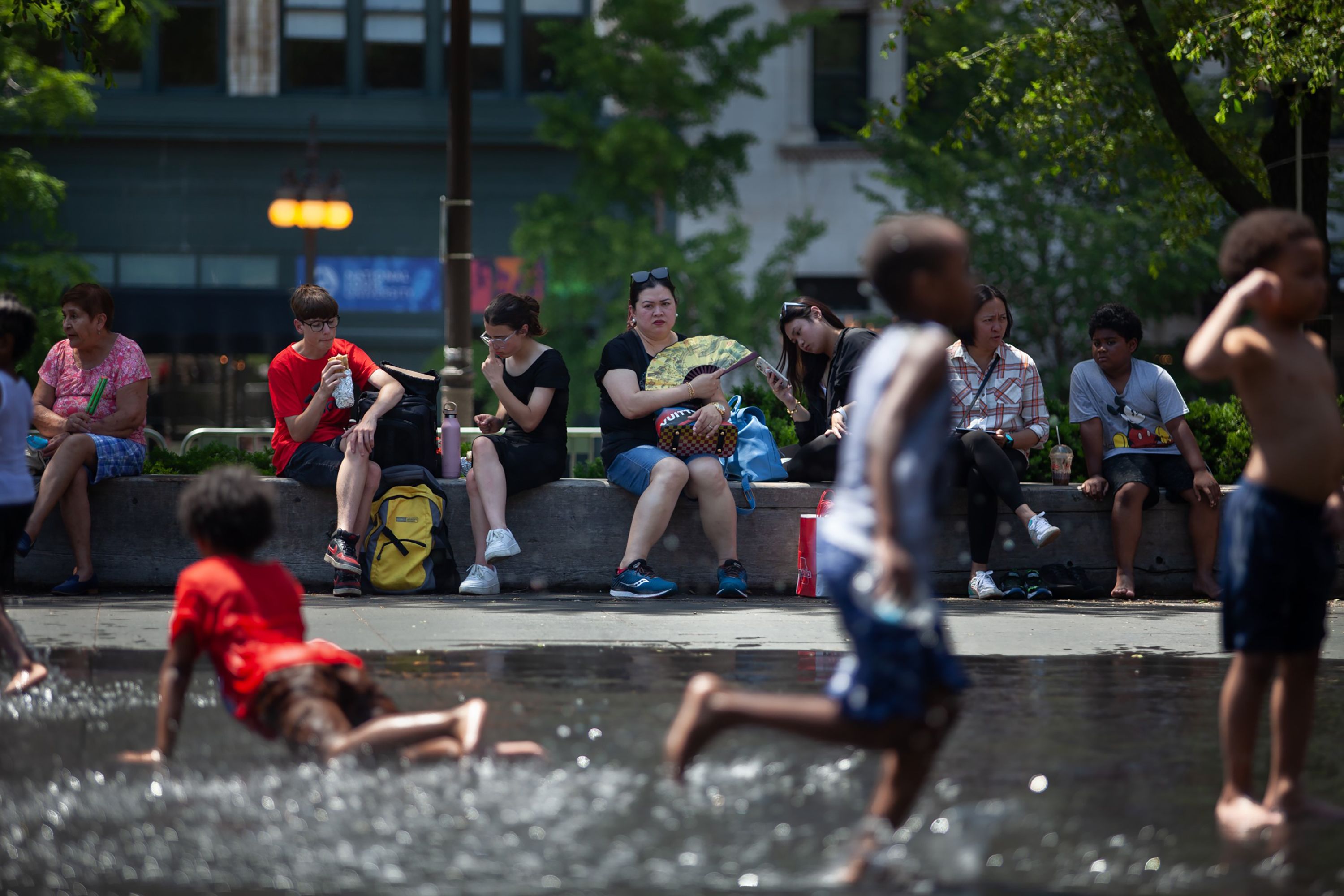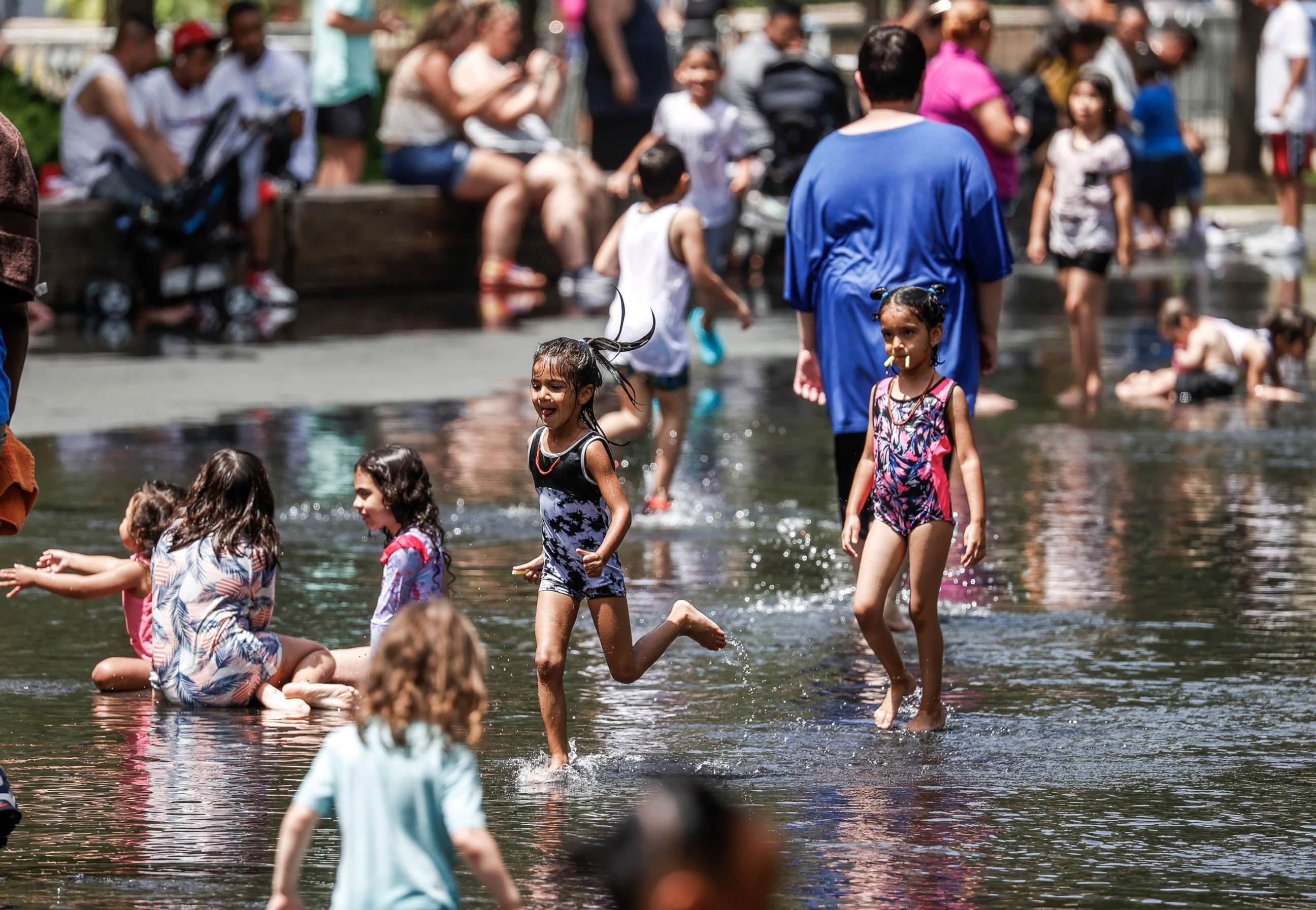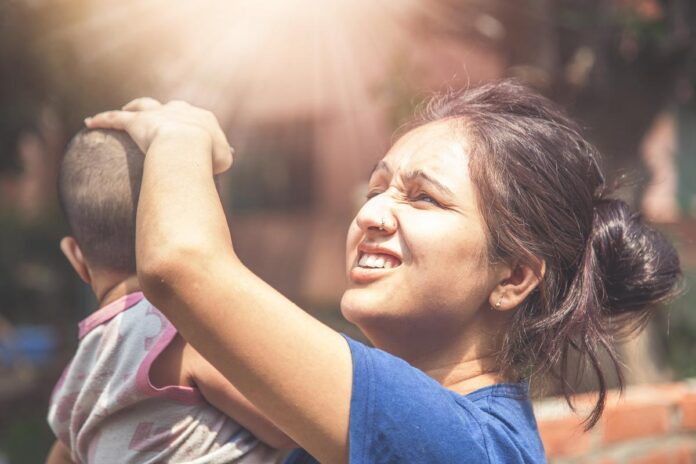Doctors warn that during record-breaking heat waves, newborns—who are among the most susceptible to death from high heat—may be easily forgotten.
According to the Mohave County Sheriff’s Office, a 4-month-old kid passed away last week near Lake Havasu, Arizona, after becoming unwell from the heat. That day, the highest temperature recorded in the region was around 120 degrees Fahrenheit.
Because of climate change, days with high temperatures have grown more frequent and severe, making extreme heat an increasingly common concern.
Advocates for child safety and pediatricians claim that as a consequence, newborns are dying unnecessarily. Though it is still low when compared to other causes of mortality, the rate of severe heat deaths among newborns in the United States is greater than the rates for children, teenagers, or young people.

According to an NBC News study of data from the Centers for Disease Control and Prevention, 69 children died from excessive heat between 2018 and 2023 — over 2 fatalities for every 100,000 infants during that period. The number of fatalities includes those in whom heat was the primary cause as well as a contributing factor. Because they are either mislabeled on death certificates or are not recognized by a medical examiner, heat fatalities are often underreported.
Pediatricians cite a number of factors as to why prolonged heat exposure increases the risk of sickness or death in babies. Some are biological: infants have a harder difficulty cooling themselves when they get warm and tend to overheat more quickly than older children and adults.
Pediatrician Dr. Katie Lockwood of Children’s Hospital of Philadelphia said, “They have more body surface area than mass, so they gain heat really quickly, and in fact can heat up three to five times faster than an adult.”
Moreover, babies’ underdeveloped sweat glands make it more difficult for them to control their body temperature in hot weather.

According to Lockwood, “They do sweat, but it’s not as effective at keeping them cool as it might be in an older child or adult.” To assist a newborn cool off, she suggested fanning them, spraying them with water, or giving them a cold cloth.
Then there are communication problems: parents must watch out for the telltale indicators of overheating in their infants, since they are unable to alert others to the situation.
The division head of emergency medicine at Nemours Children’s Hospital in Orlando, Florida, Dr. Todd Glass, said that “the signs of heat illness are not necessarily specific until it gets bad.” You’re in serious danger if your skin starts to get dry, heated, and pale.

Look for perspiration, flushed or warm to the touch skin, said Lockwood. Babies who are overheated may also exhibit fussiness, lethargy, or labored breathing. Other signs of dehydration include dry lips, inability to cry, and unusual urinating and defecating patterns. According to Lockwood, infants that are well-hydrated often go through three heavy diapers a day and have practically clear or light yellow pee.
She also said that because newborns under six months old are still unable to sip water, they may need extra breast milk or formula during hot weather. On really hot days, parents may also wish to confine their child to shaded spots outdoors during the hottest part of the day—roughly from 10 a.m. to 2 p.m.—or keep them in the air conditioning.
Lockwood advised dressing infants in loose-fitting, light-colored clothes on warm days. In particular, she advised avoiding putting too many clothes on kids who are older than a few months.
“It is common for people to overbundle infants,” the speaker said. “After the neonatal stage, you may dress your child in clothes that match your own. They don’t need an additional layer of apparel.
Pediatricians also caution about a particularly terrifying scenario when temperatures rise: leaving an infant alone in a vehicle.
According to Glass, “the car is basically a solar oven.” “The sun comes in and the heat can’t escape; you close all the doors and leave the windows open.”

A automobile parked in the sun in 95 degree or greater temperatures may achieve an inside temperature of 116 degrees Fahrenheit in about an hour, according to one research.
Approximately sixty newborns are thought to have perished in hot automobiles since 2018, according to data from Kids and Car Safety, a nonprofit organization dedicated to removing hazards associated with vehicles for children. This year, two of such fatalities took place.
2020 saw the premature death of Makia Wallace’s son Jace Leslie, who was left in a hot vehicle. He was left in the back seat of a vehicle that had reached 105 degrees Fahrenheit for almost seven hours when a caregiver was meant to drop him off at daycare. That day, the highest temperature recorded in Orlando, Florida, was around 91 degrees Fahrenheit.
Wallace said, “I could not wrap my head around it.” “It felt like everything stopped around me.”
She stated Jace exuded happiness. He enjoyed praise music and had a contagious grin. Wallace is now on a mission to inform parents that accidents like the one that claimed her son’s life may be avoided.
“No one told me about hot car deaths,” she remarked, before her own tragedy. “No one told me that when I went to have my youngster checked out.”
Safe Kids Worldwide, a group dedicated to preventing injuries to children, states that a kid should never be left alone in a vehicle, not even for a little while.
“Take your child with you if you need to run to the dry cleaners to get your clothes and you can see the car, as there may be something that will divert your attention.” The head of the group, Torine Creppy, said that it may take longer than anticipated.
According to Creppy, parents are sometimes exhausted or operating on autopilot, so she suggests keeping a phone, wallet, or pocketbook next to a child’s seat as a reminder to check on them before getting out of the vehicle.

According to Lockwood, parents who cover strollers or car seats to shield the sun might put their children in risk on hot days because it impedes ventilation. She advised that your kid is not as comfortable in the heat as you are as a decent general rule of thumb.
“We often assume that children are feeling the heat in the same way that we do,” she said. “At my office, I frequently remind parents that if you feel hot, your child will feel hotter.”





